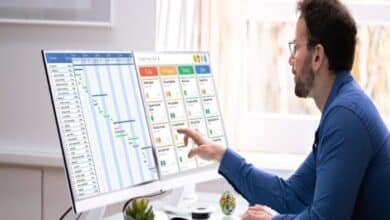As patients, we put enormous faith in healthcare professionals. We rely on their expertise, diligence, and commitment to ensure our well-being.
However, have you ever wondered what happens when this trust is misplaced? While most healthcare professionals in St. Louis provide excellent service, mistakes can happen. These mistakes, called medical malpractice, can have serious consequences.
According to the National Practitioner Data Bank, Missouri saw 450 medical malpractice payment reports from 2022 until March 31, 2024.
In 2022, there were 233 reports; in 2023, 84 reports were submitted. A medical malpractice payment report is a report that contains the payment details about a settled medical malpractice claim. The report also indicated that diagnostic errors accounted for a substantial portion of these claims, emphasizing the need for accurate and timely diagnosis.
This article aims to empower you with the knowledge you need to protect your health and understand your rights as a patient.
Understanding Medical Malpractice in Missouri
Medical malpractice takes place when a healthcare professional provides substandard care, causing harm to the patient. Common types of medical malpractice include operative failures, wrong diagnoses, medication inconsistencies, and lack of informed consent.
Medical malpractice isn’t always obvious. However, certain signs can raise concerns. An inaccurate diagnosis or a significant delay in diagnosis can stop you from receiving the appropriate treatment. Surgical complications, such as operating the wrong part or leaving instruments inside the body, can also occur.
Medication errors, including incorrect dosages or prescribing medications that interact negatively with existing conditions, are another potential risk. If you’re a new parent, be aware that birth injuries might be the result of medical negligence. Anesthesia errors, though rare, can cause severe harm.
To prove medical malpractice in Missouri, several legal standards must be met. First, there must be a patient-provider relationship, establishing a duty of care. Second, the healthcare provider must have breached that duty by acting negligently. Third, the patient must have suffered harm or injury.
Finally, a direct causal link between the negligence and the patient’s injury must be established. TorHoerman Law suggests having an experienced legal team on your side. It can make all the difference in ensuring your rights are protected. Their expertise can be invaluable in assessing your case, explaining your options, and guiding you through the complex legal process.
The Impact: More Than Just Physical
The adverse effects of medical malpractice last go further than physical injuries. Victims often experience emotional trauma, anxiety, and even depression.
The financial burden can also be immense, with additional medical bills, lost wages due to missed work, and the costs of rehabilitation adding up quickly. Recognizing the full scope of harm that medical negligence can cause is essential. In January 2024, a St. Louis County jury awarded a $10 million verdict to a 25-year-old woman who suffered lifelong complications due to a botched C-section.
The woman was suffering from voiding dysfunction and serious infections. Moreover, she’ll also need to use a catheter (to empty her bladder) for the rest of her life. This case highlights medical negligence’s significant financial and emotional repercussions and underscores the importance of seeking legal help if you suspect malpractice.
What to Do if You’re Concerned
If you believe you’ve been a target of medical malpractice, don’t panic. Start by gathering all your medical records and seeking another assessment from a different healthcare professional.
This can help confirm your suspicions and provide additional information. It’s also crucial to contact licensed St. Louis personal injury lawyers who are versed in medical malpractice. They can review your petition, explain your options, and walk you through the course of action.
Understanding the Legal Process
If your case has merit, your lawyer will appeal. Your lawyer will be your guide throughout the process, working to secure the compensation you deserve.
Registering a medical malpractice case involves several steps. First, your attorney will help you gather evidence, including medical records and expert and witness testimonies, to build your case. Then, they will file a complaint in court.
In Missouri, the statute of limitations for medical malpractice cases is two years from the date of the injury or when the injury was identified. The legal process can cause different outcomes. Many cases are settled out of court, but some go to trial.
Settlements can provide payouts for medical fees, lost income, and emotional and physical distress. However, in some cases, proving medical malpractice can be difficult. A juridical tenet called “Res Ipsa Loquitur” (Latin for “the thing speaks for itself”) can help.
This legal principle applies when the injury wouldn’t have occurred without negligence. It establishes that the cause was under the healthcare provider’s control and shifts the burden of proof onto the defendant. This makes it simpler for patients to seek justice.
What Patients Can Do To Prevent Medical Malpractice
Being an informed and proactive patient can help prevent medical malpractice. Always ask questions about your condition, therapy options, and medications.
Ensure you know of all the drawbacks and upsides of all procedures. Research your condition and be informed about potential dangers. Keep detailed records of your medical visits and any concerns you have.
Most importantly, trust your instincts. Don’t be afraid to speak up or seek a fresh perspective if something feels off.
Maintain honest and transparent dialogue with your healthcare providers. This can help reduce confusion and ensure that your concerns are addressed promptly.
Moreover, familiarize yourself with St. Louis patient advocacy groups and support networks. These resources provide valuable information and assistance if you encounter issues with your medical care.
Frequently Asked Questions
Q1. Can I Still File a Medical Malpractice Claim Without Signing a Consent Form?
Yes, you can. A signed consent form doesn’t automatically absolve a healthcare provider of liability.
If the doctor failed to inform you of the risks associated with the treatment or procedure, or if the care provided fell below the accepted standard, you may still have a valid claim.
Q2. What Are the Common Causes of Malpractice in St. Louis?
Common causes include misdiagnosis, surgical errors, medication mistakes, and lack of informed consent. Overworked staff, miscommunication, and inadequate training can contribute to these errors.
Hospitals in St. Louis, like elsewhere, face challenges that can trigger such mistakes. This emphasizes the need for patients to be vigilant and proactive about their care.
Q3. How Can I Hire a Trustworthy Medical Malpractice Attorney in St. Louis?
Seek recommendations from friends or family, check online reviews, and look for lawyers with a strong track record in medical malpractice cases.
Ensure they are experienced in local St. Louis laws and have a history of successful settlements or verdicts. Initial consultations can gauge their approachability and dedication to your case.
In conclusion, medical malpractice can have life-altering implications for survivors and their families. By understanding the signs of medical negligence and knowing your rights, you can take steps to protect your health and well-being.
If you suspect you’ve been a victim, don’t hesitate to seek legal help from experienced professionals. They can guide you through the process and advocate for your best interests. Remember, you’re never alone. Always put your health and well-being first.





